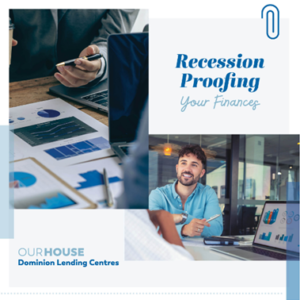
When it comes to getting a mortgage, there is a common misperception that a low rate is the most important factor. However, while your rate does matter for your mortgage, it is not the only component to consider.
If you’re looking to get a mortgage, these are some other important factors that you should look at beyond simply the interest rate:
Term: The length of time that the options and interest rate you choose are in effect. A shorter term (5 years) allows you to make changes to your mortgage sooner, without penalties.
Amortization: The length of time you agree to take to pay off your mortgage (usually 25 years). This determines how the interest is amortized over time.
Payment Schedule: How often you make your mortgage payments. It can be weekly, every two weeks or once a month and will affect your monthly cashflow differently depending on your choice.
Portability: An option that lets you transfer or switch your mortgage to another home with little or no penalty when you sell your existing home. Mortgage loan insurance can also be transferred to the new home.
Pre-Payment Options: The ability to make extra payments, increase your payments or pay off your mortgage early without incurring a penalty.
Penalty Calculations: Where variable rates typically charge three-months interest, a fixed rate mortgage uses an Interest Rate Differential (IRD) calculation. This can add up quite quickly! In fact, in some cases, penalties for breaking a fixed mortgage can sometimes be two or three times higher than that of a variable-rate.
Variable versus Fixed: For fixed-rate mortgages, the interest rate does not fluctuate over time. For variable-rate mortgages the interest rate fluctuates with market rates, which can be great when rates drop but not so great when rates are rising.
Open versus Closed: An open mortgage is similar to pre-payment options, allowing you to pay off your mortgage at any time with no penalties. A closed mortgage, on the other hand, offers limited to no options to pay off your interest in full despite often having lower interest rates.
When considering your mortgage, the above components all have a part to play in your overall mortgage as well as your homeownership experience.
It is easy to think that a low-interest rate is good enough, sign on the dotted line… but you may be overlooking important options such as portability, which allows you to switch your mortgage to another property should you choose to move. Or pre-payment options, which give you the choice to make additional payments to your mortgage. Without looking deeper at your mortgage, you may find yourself being forced to pay penalties in the future because you wanted to make a payment or a change to your mortgage structure. In some cases, agreeing to a higher rate to have more options and flexibility is better in the long run than the savings received from a lower rate.
Before agreeing to any mortgage, be sure to book a time for a discovery call with me before making any decisions. We can discuss your future goals and any potential concerns you have to ensure that you get the best mortgage product for YOU.











 Canada has seen a surge of international migration over the last few years. In 2022, we welcomed a total of 431,635 immigrants to the country, shattering 2021’s previous high!
Canada has seen a surge of international migration over the last few years. In 2022, we welcomed a total of 431,635 immigrants to the country, shattering 2021’s previous high!